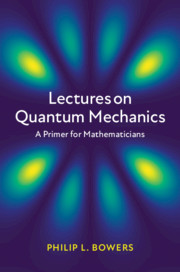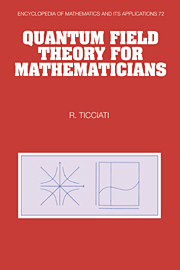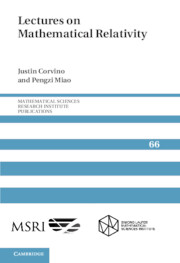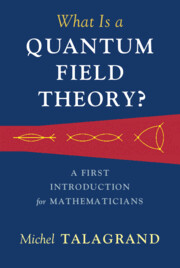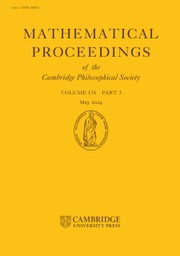Lectures on Quantum Mechanics
Quantum mechanics is one of the principle pillars of modern physics. It also remains a topic of great interest to mathematicians. Since its discovery it has inspired and been inspired by many topics within modern mathematics, including functional analysis and operator algebras, Lie groups, Lie algebras and their representations, principle bundles, distribution theory, and much more. Written with beginning graduate students in mathematics in mind, this book provides a thorough treatment of (nonrelativistic) quantum mechanics in a style that is leisurely, without the usual theorem-proof grammar of pure mathematics, while remaining mathematically honest. The author takes the time to fully develop the required mathematics and employs a consistent mathematical presentation to clarify the often-confusing notation of physics texts. Along the way the reader encounters several topics requiring more advanced mathematics than found in many discussions of the subject, making for a fascinating course in how mathematics and physics interact.
- A mathematically honest treatment of quantum mechanics suitable for graduate students
- Develops the required mathematics in full while retaining a leisurely style
- Features several topics of interest requiring more advanced mathematics than found in many quantum mechanics texts
Reviews & endorsements
'Quantum mechanics lies at the foundation of science, as well as inspiring a great deal of mathematics. Lectures on Quantum Mechanics provides mathematicians and mathematics students with a very readable exposition of the subject, including the mathematical clarity missing from the physics textbooks.' Peter Woit, Columbia University
'The author of this non-traditional textbook for mathematicians explains carefully how mathematical concepts can be used to encode physical content of quantum mechanics. The topics are very well chosen and ordered. All chapters are mostly independent, allowing readers to get to the heart of the subject quickly and nonlinearly.' Phan Thành Nam, LMU Munich
'… this is a useful text that integrates mathematics and quantum mechanics, one that promises to help first-year graduate students ready themselves for advanced research. Recommended.' M. O. Farooq, Choice
Product details
September 2020Hardback
9781108429764
582 pages
234 × 155 × 32 mm
1.02kg
Available
Table of Contents
- Preface
- Prolegomenon
- 1. The Harmonic Oscillator: Classical verses Quantum
- 2. The Mathematical Structure of Quantum Mechanics
- 3. Observables and Expectation Values
- 4. The Projection Postulate Examined
- 5. Rigged Hilbert Space and the Dirac Calculus
- 6. A Review of Classical Mechanics
- 7. Hamilton-Jacobi Theory *
- 8. Classical Mechanics Regain'd
- 9. Wave Mechanics I: Heisenberg Uncertainty
- 10. Wave Mechanics II: The Fourier Transform
- 11. Wave Mechanics III: The Quantum Oscillator
- 12. Angular Momentum I: Basics
- 13. Angular Momentum II: Representations of su(2)
- 14. Angular Momentum III: The Central Force Problem
- 15. Wave Mechanics IV: The Hydrogenic Potential
- 16. Wave Mechanics V: Hidden Symmetry Revealed
- 17. Wave Mechanics VI: Hidden Symmetry Solved
- 18. Angular Momentum IV: Addition Rules and Spin
- 19. Wave Mechanics VII: Pauli's Spinor Theory
- 20. Clifford Algebras and Spin Representations *
- 21. Many-Particle Quantum Systems
- 22. The EPR Argument and Bell's Inequalities
- 23. Ensembles and Density Operators
- 24. Bosons and Fermions
- 25. The Fock Space for Indistinguishable Quanta
- 26. An Introduction to Quantum Statistical Mechanics
- 27. Quantum Dynamics
- 28. Unitary Representations and Conservation Laws
- 29. The Feynman Formulation of Quantum Mechanics
- 30. A Mathematical Interlude: Gaussian Integrals
- 31. Evaluating Path Integrals I
- 32. Evaluating Path Integrals II
- Epilogue
- Resources for Individual Exploration
- Bibliography
- Index.

